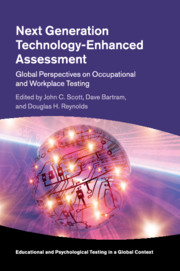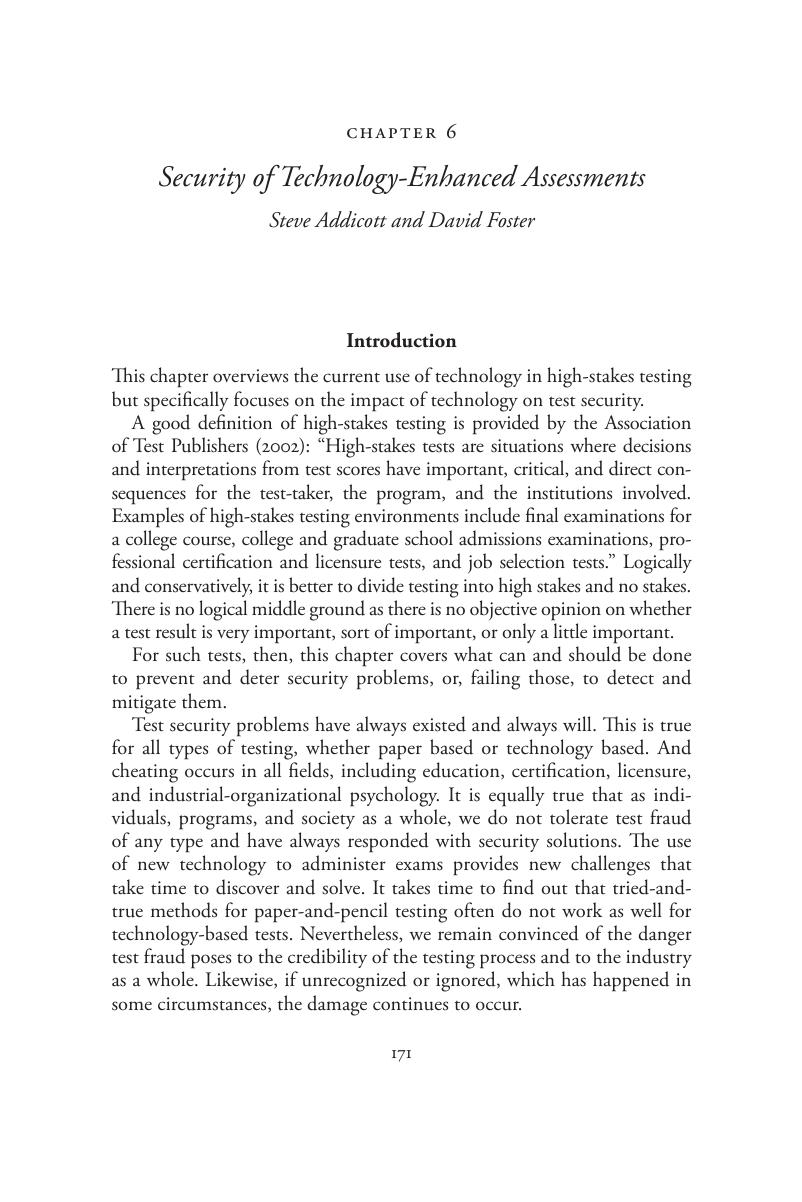 Next Generation Technology-Enhanced Assessment
Next Generation Technology-Enhanced Assessment Book contents
- Next Generation Technology-Enhanced Assessment
- Next Generation Technology-Enhanced Assessment
- Copyright page
- Contents
- Notes on Contributors
- Series Editor’s Foreword
- Preface
- Part I Common Assessment Methods Deployed with Internet Technology
- Part II Technical Foundations for Internet-Based Assessment Delivery
- Part III Advances, Trends, and Issues
- Chapter 5 Changing Relationships within the Testing Ecosystem
- Chapter 6 Security of Technology-Enhanced Assessments
- Chapter 7 The Changing Landscape of Technology-Enhanced Test Administration
- Chapter 8 Using Social Media for Assessment
- Chapter 9 Technology-Driven Developments in Psychometrics
- Chapter 10 Integration with Applicant Tracking and Management Systems
- Chapter 11 The Gamification of Employee Selection Tools
- Part IV Guidelines for Practice and Future Directions
- Index
- References
Chapter 6 - Security of Technology-Enhanced Assessments
from Part III - Advances, Trends, and Issues
Published online by Cambridge University Press: 18 December 2017
- Next Generation Technology-Enhanced Assessment
- Next Generation Technology-Enhanced Assessment
- Copyright page
- Contents
- Notes on Contributors
- Series Editor’s Foreword
- Preface
- Part I Common Assessment Methods Deployed with Internet Technology
- Part II Technical Foundations for Internet-Based Assessment Delivery
- Part III Advances, Trends, and Issues
- Chapter 5 Changing Relationships within the Testing Ecosystem
- Chapter 6 Security of Technology-Enhanced Assessments
- Chapter 7 The Changing Landscape of Technology-Enhanced Test Administration
- Chapter 8 Using Social Media for Assessment
- Chapter 9 Technology-Driven Developments in Psychometrics
- Chapter 10 Integration with Applicant Tracking and Management Systems
- Chapter 11 The Gamification of Employee Selection Tools
- Part IV Guidelines for Practice and Future Directions
- Index
- References
Summary

- Type
- Chapter
- Information
- Next Generation Technology-Enhanced AssessmentGlobal Perspectives on Occupational and Workplace Testing, pp. 171 - 192Publisher: Cambridge University PressPrint publication year: 2017
